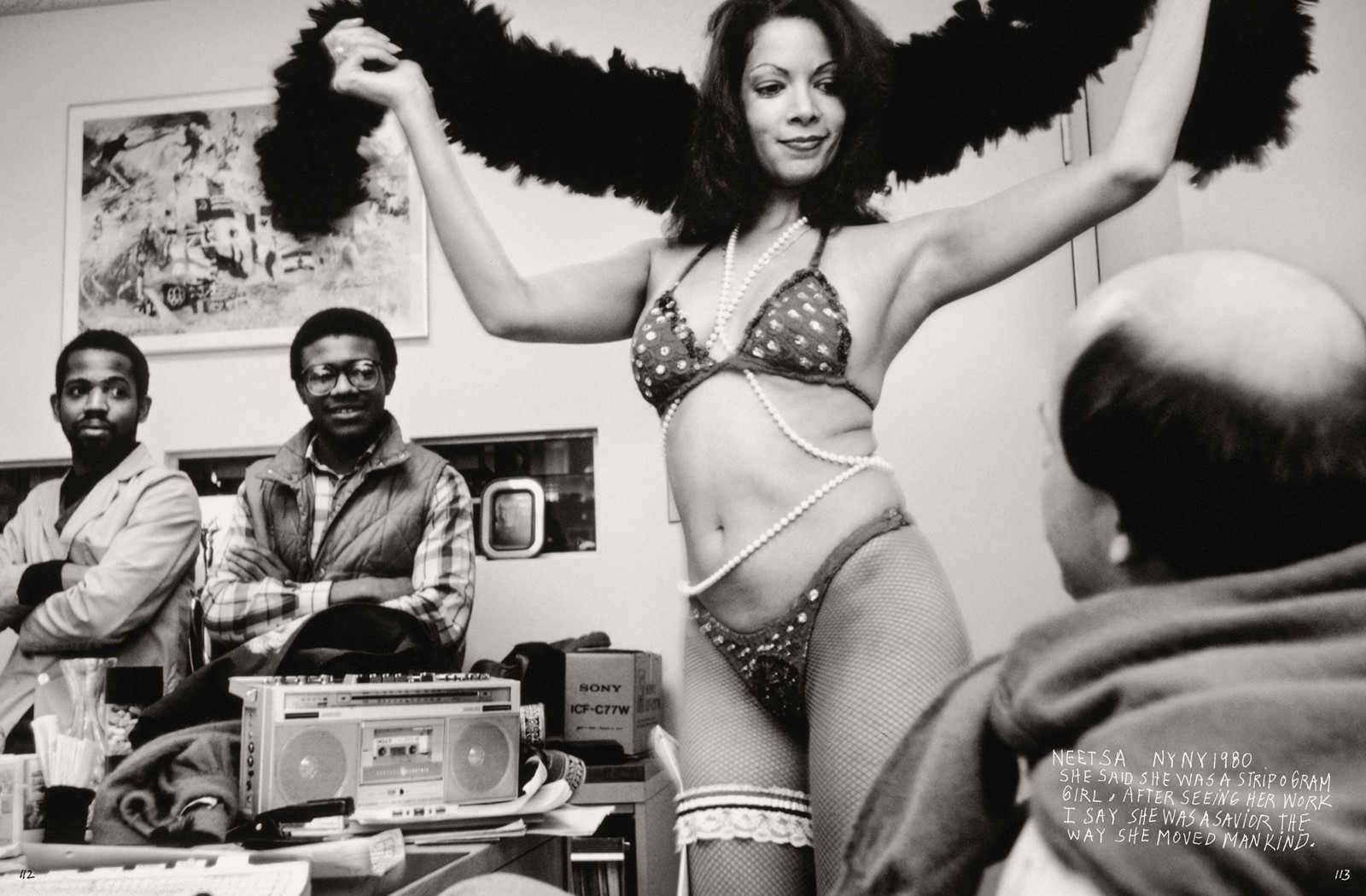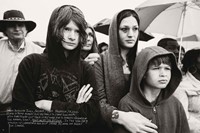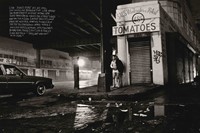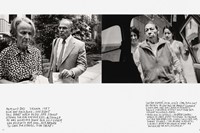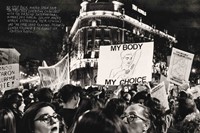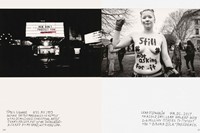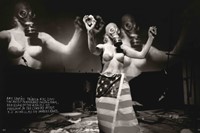Donna Ferrato remembers the exact moment she was radicalised. It was 1981, and she was working on a photography project for Japanese Playboy about wealthy swingers in New York. One evening, while documenting a young, attractive, and apparently happy straight couple in their home, Ferrato witnessed something that changed her life forever. The man – blinded by a sudden, searing rage – raised his hand and smacked his partner around the face, then grabbed her forcefully by the throat.
Ferrato instinctually picked up her camera and started taking photos of the moment, hoping it might deter him from more violence. It didn’t. “He slapped his wife in the face in front of me with total impunity,” the photographer remembers. “It just shook me to my core … I could see he really thought he had the right to do that.”
Originally from Lorain, Ohio, Ferrato has been working as a photojournalist for close to five decades. During that time, she has established herself as a pioneering force for women’s rights, using her camera to spotlight issues that have been willfully ignored by much of society. Her black and white photographs have captured everyone, from activists and artists to migrants and survivors of domestic abuse. They’ve also won her numerous awards, been published in practically every major publication, and even transformed US policy (her 1991 book on domestic abuse, Living With The Enemy, helped pressure Congress into passing the Violence Against Women Act).
Ferrato’s latest book, HOLY, published by powerHouse, is the culmination of decades of this work. It is a ferocious, 176-page collection of her most blistering photography, annotated with handwritten notes and blood-red splashes of colour (a visual representation, she says, of a “woman’s heart”). It’s proof that, even at 71, Ferrato is still as radical, spirited and valorous as she’s always been – and a rebel to her bones. “It’s the heteros that really scare me,” she jokes over the phone, when I call her to discuss the book‘s release this month. “I really think they’re the ones I’m most afraid of.”
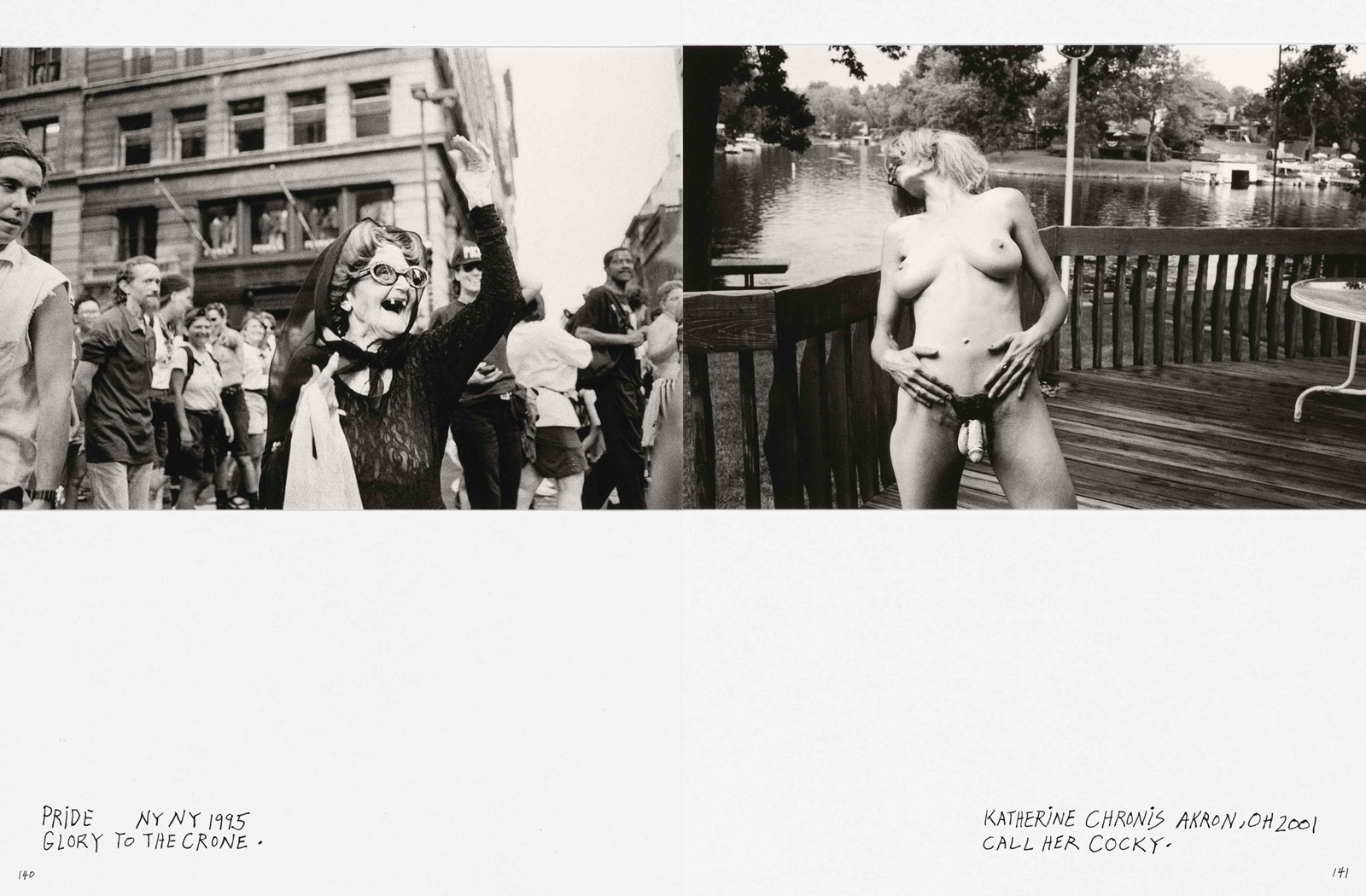
Dominique Sisley: Why did you choose to make this book now, after nearly five decades of work as a photographer?
Donna Ferrato: I started making HOLY four years ago, because I was so distraught with the election of Donald Trump. I couldn’t believe that we’d put the future of America into the hands of a man who had no respect for women or people of colour. I knew we were going into a very dark period, and I realised that, to survive the next four years with him, women were going to have to be bold, out there, and angry. So what I tried to do with this book was take the stories of all the women who’d made the greatest impression on me since I was a teenager and put their stories and their photographs together. It became like a journey – a woman’s journey.
DS: Domestic abuse has been a subject you’ve covered extensively in your career. What other issues have you felt drawn to over the years?
DF: Abortion rights have always been important to me. When I was just starting out as a photographer, I got pregnant in Paris. There was no way that I was ready to have a child then: I wasn’t making any money, and I didn’t want to be dependent on my partner. I wanted to be a photographer! So I had an abortion and honestly never looked back. In my mind, abortion is a fundamental right for every woman.
“We want to see men crying, and we want to laugh in their faces because we’re tired” – Donna Ferrato
DS: Working in women’s rights today seems particularly difficult: feminism as a movement feels very fraught and divided. I’m interested to know what your thoughts are on it now?
DF: What makes a woman a feminist is standing up for the rights of other women, not just for yourself. All these white women who’ve been voting Republican and voting against women’s rights are not feminists, no matter what they think. No woman is allowed to dictate to another woman how she should live and what choices she can make for herself.
DS: Do you feel hopeful now that Trump is gone?
DF: I feel very hopeful. Honestly, I really thought that Trump was going to have another four years; I just didn’t know if there were enough people to really stand up against him. But this election was won by women of colour – women who knew that they weren’t going to put up with this anymore; that enough was enough. We’re going to see big changes in this country because so many young women with fire in their bellies are entering politics now. We want to see men crying, and we want to laugh in their faces because we’re tired. Men have been blowing up everything, exploding all the good work that we do with our jobs, families, children, and even our own lives, and they’ve always got away with it. I really believe things are going to change now. They have to change. But it’s really hard to get men to give up or share their power, and they’re going to be fighting us every step of the way.
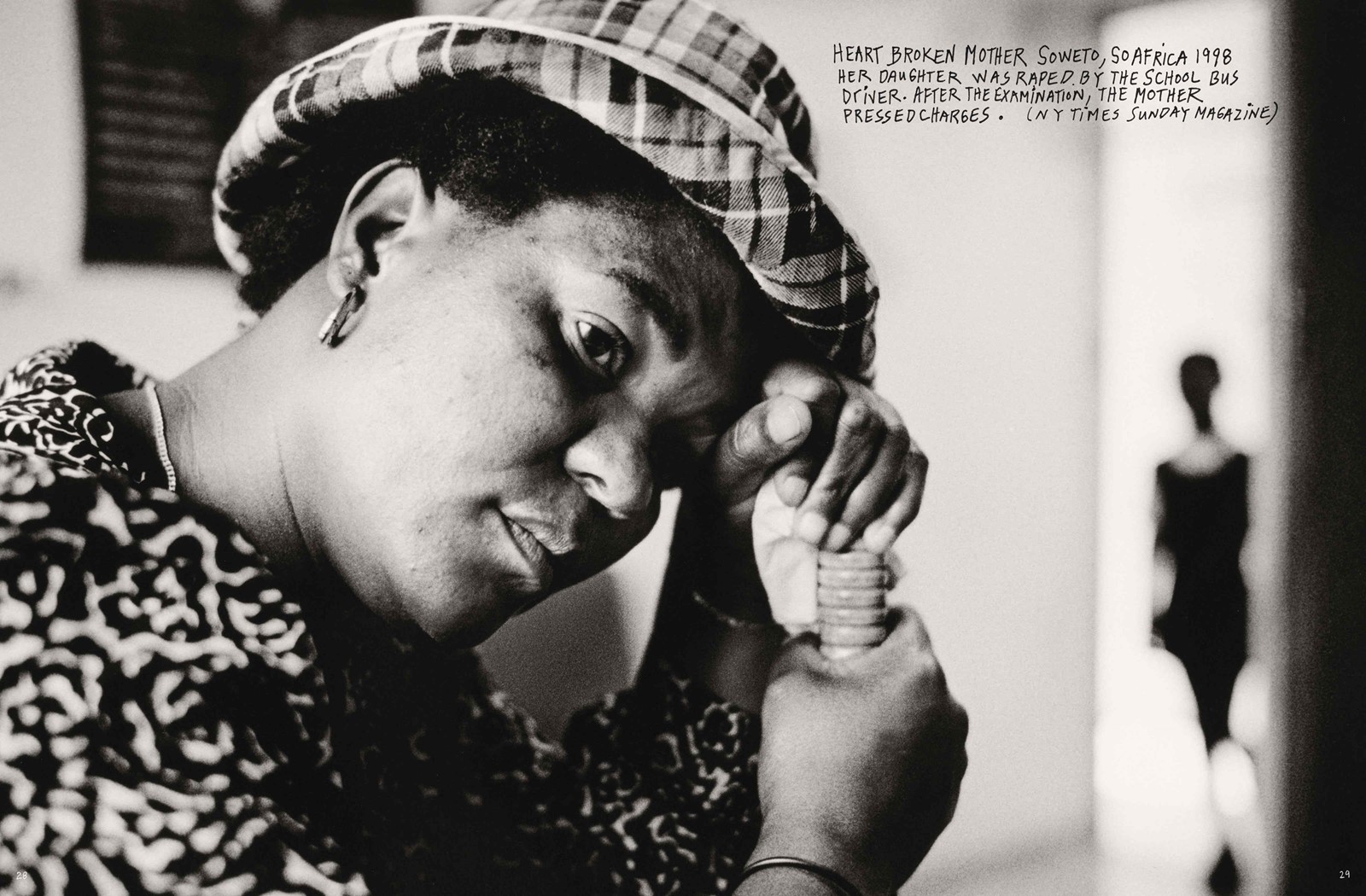
DS: Do you have any concerns about Biden?
DF: You have to remember that Biden created the Violence Against Women Act, and did a lot of listening to women when it came to domestic violence. Years ago, after the bill was passed in the 90s, I saw Biden on a commuter train, and I went up to him to say thank you for supporting it. I introduced myself and he knew who I was, and said that he had my book Living With The Enemy on his bookshelf. He said that it had helped to educate him, and he thanked me. That was amazing.
DS: You talk a lot about the “heart” of a woman. But gender roles are starting to feel more fluid now, and our ideas of womanhood are in constant flux. What does it actually mean to be a woman today, in your opinion? And what defines the “heart” of a woman?
DF: The heart of a woman is to be loving, and to have generosity. And for me, gender fluidity is a beautiful thing. I’m actually opposed to this idea that there is just a male and a female – in fact, I think that’s why we have so many problems today. If someone feels that they’re a woman, then they’re a woman. Whatever it takes for every person to feel that love for themselves, as whatever gender they want to be, that’s all that matters. It’s toxic masculinity that’s the real problem. So many people – men in particular – are so aggressive, dominant and mean, and they’re often the ones who are most afraid. That’s why they’re so dismissive of everybody else’s feelings. But the people who are trying to figure it out, and understand themselves better and how they fit into this world, they are the powerful ones. They are the people who can teach everybody else a lot about happiness and satisfaction. We shouldn’t be restricted: we need to be tolerant, and we need to be open to our differences. That’s where the power and the beauty lies.
This conversation has been edited for length and clarity. HOLY by Donna Ferrato is published by powerHouse Books.
